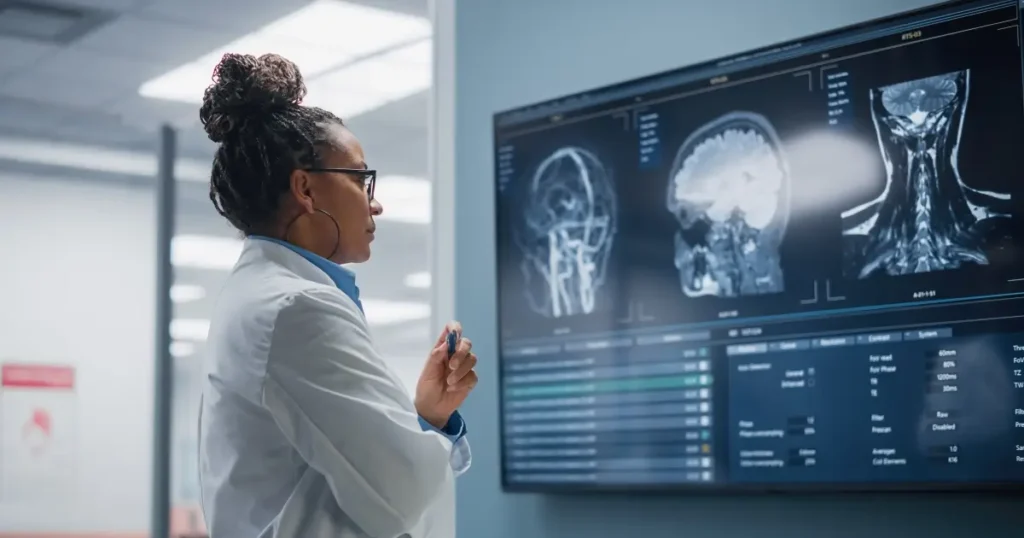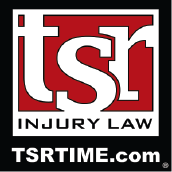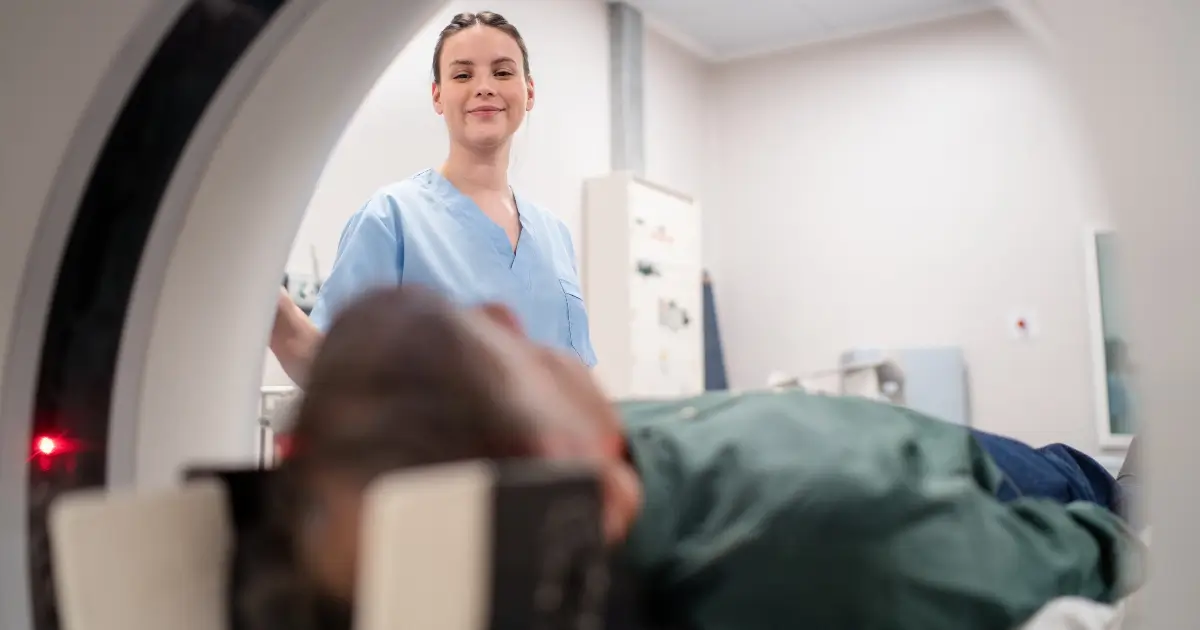
Car crashes can cause immediate damage — but not all injuries show up right away. In the days and even weeks after a crash, it’s common for new symptoms to emerge. When those symptoms are tied to the collision, they can be painful, disruptive, and expensive.
Insurance companies, however, often push for quick settlements — and that’s a problem. Signing too soon can leave you without the compensation you need for medical bills, missed work, and long-term care.
At TSR Injury Law, our experienced car crash attorneys in Minneapolis understand the critical connection between delayed symptoms and proper compensation. Our knowledgeable legal team actively protects the rights of the Minnesota car crash victims we represent, fighting to ensure all injuries, both immediate and delayed, are factored into any final settlement agreement.
Need legal help after a crash? Call (612) TSR-TIME for a free consultation.
Delayed Injury Symptoms: Why Minnesota Car Crash Victims Should Wait to Settle
After a car crash, it can take time for your body to fully react. Sometimes the adrenaline masks pain. Other times, the injuries themselves simply take time to show up.
This is especially true with injuries that affect muscles, nerves, or your brain. You may feel “okay” at first — only to notice new symptoms or increasing discomfort days later.
Settling early after a car crash, before the extent of your injuries has become fully known, can create a significant financial hardship. Until your injuries have fully resolved and your treatments have concluded, you are getting new medical bills. Settling too soon can leave you paying thousands of dollars out of your own pocket for these additional costs.
At TSR Injury Law, we understand the critical connection between delayed crash injury symptoms and proper compensation. When we represent you, we protect your rights from day one, ensure that all your injuries, both immediate and delayed, receive proper consideration before any settlement is agreed to or signed.
Why Agreeing to a Quick Settlement After a Minnesota Car Crash Can Cost You
Early settlements almost always benefit insurance companies, not injured victims. Insurance adjusters know that offering money quickly can tempt those facing immediate financial pressure from medical bills and missed work. However, these initial offers cannot account for the full scope of damages, and victims run the risk their injuries may worsen or new symptoms may develop in the days or weeks that follow.
Once you accept a settlement and sign a release, you legally forfeit your right to pursue additional compensation, even if your condition deteriorates significantly. This permanent and binding decision comes at precisely the wrong time, because in the early days and weeks after your car crash, your body has not yet revealed the full extent of your injuries. Many crash injuries, particularly those affecting soft tissue, nerves, and the brain, follow a gradual progression that medical evaluations cannot fully predict in the immediate aftermath.
Questions to Ask Yourself Before You Agree to Any Settlement
- Am I still seeking medical treatment?
- Has my doctor discharged me?
- Do I still have pain and other limitations from my car crash?
- Am I back at work and able to do my job as before?
- Has my car been repaired or replaced at no cost to me?
- Can I function normally at home and take care of daily household tasks?
Thes are just some initial questions to ask yourself before agreeing to any settlement. Until these and other issues have been resolved, any early settlement offer will not be compensating you for all of your damages.
What Are Delayed Injury Symptoms After a Car Crash in Minneapolis?
Delayed injury symptoms can be either physical or cognitive problems that do not appear immediately after a collision but develop hours, days, or even weeks later.
Many Minneapolis car crash victims initially believe they escaped serious injury, only to find themselves experiencing increasing discomfort or concerning new symptoms as time passes. These delayed symptoms may indicate serious underlying injuries that need ongoing or specialized medical care that was not considered in the insurance company’s early settlement offer.
What Delayed Injury Symptoms Should I Watch for After My Minneapolis Car Crash?
Many crash victims notice subtle warning signs that something may be wrong, even before major symptoms develop. It is vital that you pay attention to any new physical or cognitive changes, even if they seem minor, following your collision.
Common delayed injury symptoms may include:
- Headaches that persist or worsen
- Neck or shoulder stiffness and pain
- Back pain or spasms
- Numbness or tingling in arms or legs
- Abdominal pain or unusual bruising
- Dizziness or balance problems
- Blurry vision or sensitivity to light
- Ringing in the ears
- Memory problems or difficulty concentrating
- Mood changes, irritability, or depression
- Sleep disturbances or fatigue
- Nausea or changes in appetite
What Six Crash Injuries Commonly Have Delayed Symptoms?
Some injuries after a car crash may be serious yet not reveal immediate symptoms, only to develop significant medical problems over time.
Here are six severe crash injuries that commonly develop delayed injury symptoms days, weeks, or even months later:
Whiplash and Neck Injuries
The rapid back-and-forth movement of a crash stretches neck tissues beyond normal limits. Whiplash injuries cause significant pain, stiffness, and restricted movement. The pain may seem minor initially, but the inflammation will continue to develop for up to 24-72 hours or longer after impact.
Traumatic Brain Injuries (TBIs)
Concussions and other types of brain trauma often do not show immediate symptoms. However, memory problems, concentration difficulties, headaches, and mood changes often appear gradually as brain tissue responds to the initial trauma.
Spinal Disc Injuries
Herniated or bulging discs develop as spinal structures compressed during the crash break down over time. Initial mild discomfort can progress to severe pain and nerve damage days or weeks later.
Internal Bleeding
Damage to blood vessels may not create noticeable symptoms until significant blood accumulates. Dizziness, weakness, and abdominal pain can develop gradually as internal bleeding continues. Without immediate treatment, internal bleeding can be life-threatening.
Shoulder Injuries
Rotator cuff tears and labral injuries often produce delayed pain and limited range of motion as inflammation increases. These injuries likely need surgical repair to ensure a full recovery.
Post-Traumatic Stress Disorder (PTSD)
The psychological trauma of a crash can continue to manifest for days, weeks, or even months later. Victims may experience flashbacks, anxiety, sleep disturbances, and develop an intense fear of driving that may make them avoid getting into a car altogether.
What If I Develop New Symptoms or My Injuries Worsen After I Agreed to a Settlement?
Your ability to pursue additional compensation after new symptoms develop depends entirely on the settlement status. If you only had verbal discussions with an insurance company but have not yet signed a release of claims, you may still retain your legal rights to pursue full compensation. Your Minneapolis car crash attorney can still incorporate these new developments into ongoing negotiations.
If, however, you signed a settlement agreement and release of liability, the situation becomes much more challenging. These documents typically contain language that permanently bars you from seeking additional compensation, even for injuries that were unknown when you signed. Limited exceptions may exist in cases involving documented fraud, misrepresentation, or improper pressure tactics from insurance representatives. A knowledgeable attorney can review your specific circumstances to determine if you have any legal options for addressing your worsening condition.
When Should I See a Minneapolis Doctor For Delayed Injury Symptoms?
Right away. If anything feels off — even slightly — get checked out. Tell your doctor about the crash and when the symptoms started so they can document everything correctly.
Seek medical attention immediately when you notice any new or worsening symptoms following your car crash. Even seemingly minor symptoms like persistent headaches or mild neck pain can indicate serious underlying injuries that require prompt treatment. When visiting your healthcare provider, clearly communicate that these symptoms developed after your recent car crash to establish proper documentation in your medical records.
This timely medical evaluation serves two critical purposes. First, it ensures you receive appropriate treatment before your condition worsens. Second, it creates an official medical record connecting your symptoms to the crash. Documentation is essential evidence in your injury claim.
It is worth mentioning that delaying medical care after a car crash not only risks your health but also gives insurance companies an opportunity to claim your injuries resulted from something other than the crash.
Can I Include Delayed Crash Injury Damages in My Injury Claim?
Yes, you can include compensation for delayed symptoms in your injury claim if you document them properly and have not already signed a settlement agreement. Minnesota law recognizes that many crash injuries develop gradually, and you deserve compensation for all harm resulting from the collision, and not solely your immediately apparent injuries.
The key to successfully including delayed injuries in your claim lies in proper medical documentation and consistent treatment. Work with healthcare providers who understand the connection between your symptoms and the crash and follow all treatment recommendations.
At TSR Injury Law our legal team can guide you throughout the legal process to ensure all medical evidence is documented and clearly establishes the causal link between the crash and your developing condition.
How Minnesota Insurance Companies Push Back on Claims With Delayed Injury Symptoms
Insurance companies routinely challenge claims involving delayed symptoms using predictable tactics designed to minimize their financial liability for your injuries.
The most familiar tactics of insurance companies include:
- Pre-existing Condition Arguments: Insurers will argue your symptoms result from old injuries or degenerative conditions rather than the recent crash.
- Causation Challenges: Questioning the connection between your car crash and the onset of delayed symptoms, especially if you waited days or weeks after the crash to seek medical help.
- Minor Impact Defense: Insurance representatives may argue that a “minor” collision could not possibly cause significant injuries, despite medical evidence proving otherwise.
- Gaps in Treatment Exploitation: Any delay in seeking treatment or missed appointments becomes ammunition to claim your injuries are not serious or not crash-related.
- Social Media Surveillance: Be aware insurance companies may monitor your online activities, looking for posts that contradict your injury claims or suggest greater physical capability than reported.
- Quick Settlement Pressure: Representatives push for rapid resolution before the full extent of your injuries becomes apparent, often presenting “time-limited” offers to create artificial urgency.
Why You Should Consider Legal Help for a Minnesota Car Crash Claim With Delayed Injury Symptoms
Our experienced car crash injury attorneys in Minneapolis understand the medical and legal complexities of delayed injury cases. We consult with medical experts who can properly document the connection between your crash and developing symptoms, building compelling evidence that insurance companies cannot easily dismiss. This experience is particularly valuable when dealing with internal injuries like concussions, herniated discs, and PTSD, that commonly develop symptoms slowly.
Legal representation also protects you from common insurance tactics like premature settlement offers and arbitrary claim denials. Your legal team can manage all communication with insurance adjusters on your behalf, helping you avoid mistakes that could hurt your claim.
At TSR Injury Law, we ensure no settlement discussions happen until your medical condition stabilizes, allowing for an accurate valuation of your long-term needs.
Do You Have Delayed Injury Symptoms After a Car Crash? Call Our Trusted Minnesota Law Firm Today
If new symptoms are starting to show, don’t wait. Insurance companies want to move fast — but your body needs time to heal, and your claim deserves time to be fully evaluated.
Protecting your health and legal rights after the onset of delayed injury symptoms requires prompt action. Do not let insurance companies minimize the serious nature of your delayed symptoms or pressure you into insufficient settlements.
At TSR Injury Law, our knowledgeable legal team in Minneapolis is deeply committed to protecting your rights and fighting for the full and fair compensation you deserve. Contact our law offices today to discuss how we can help. We accept car crash claims on contingency, so there are no upfront costs or fees to pay to engage our services.
Need a Minnesota lawyer who will fight for you? Call (612) TSR-TIME today.




